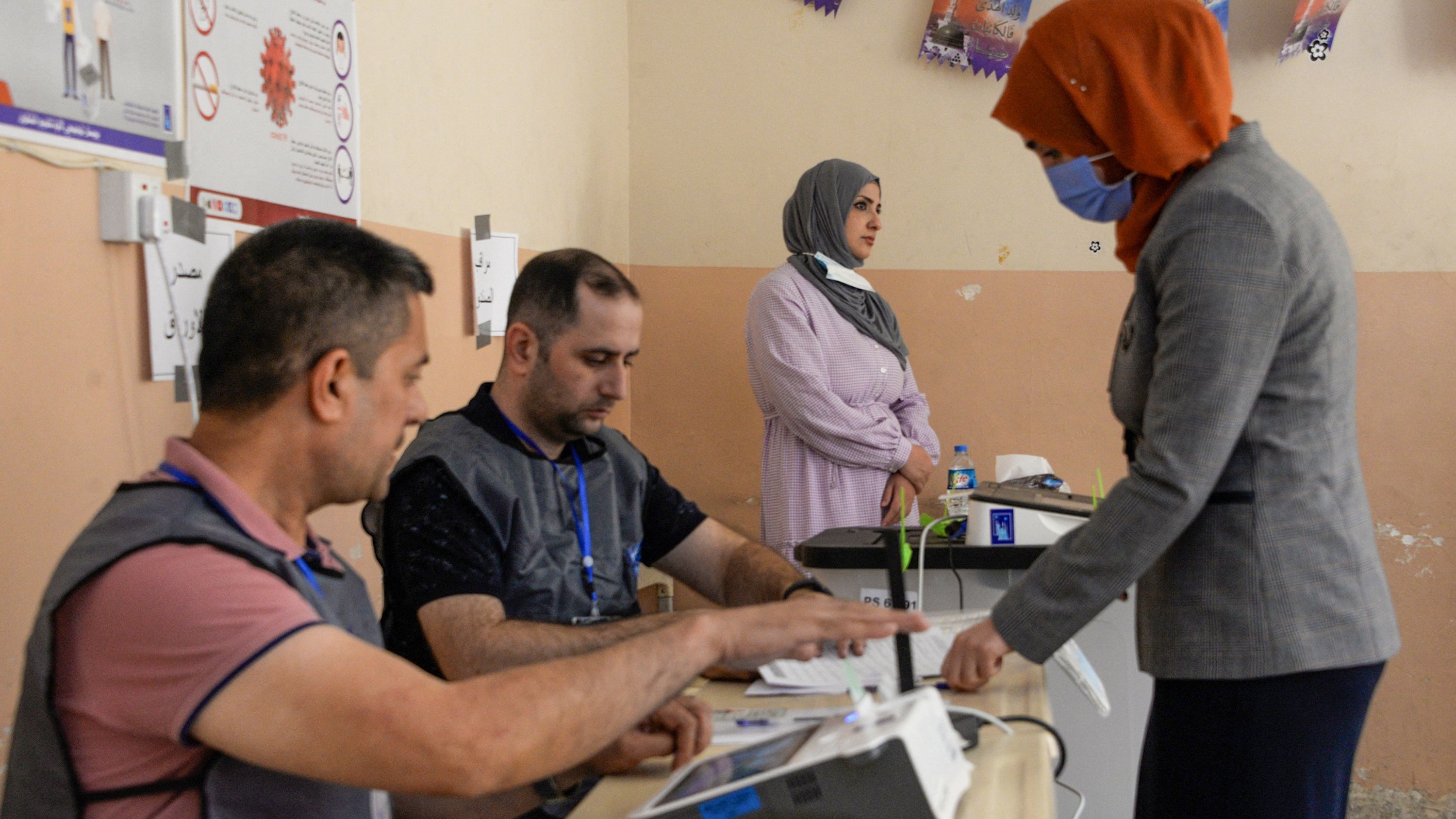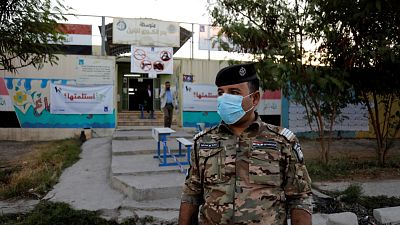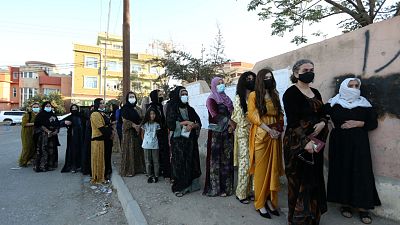
Iraq celebrate this Sunday some early parliamentary elections, which were called after the serious political crisis in which the country was plunged after the massive mobilizations registered in 2019, which forced the resignation of the Government and the approval of new electoral legislation.
Iraqi polling stations opened their doors this Sunday to the more than 25 million Iraqis who are called to the polls, in a day marked by the great deployment of the security forces and in which a low turnout is expected. The more than 8,200 polling stations across the country They began to allow entry to citizens at 7:00 local time (4:00 GMT) and will close their doors at 18:00 (15:00 GMT) to proceed with the counting of votes.
The protests, which broke out in October 2019 and left more than 550 dead -according to the official balance provided in July 2020-, they represented a new sample of the disenchantment of the population with the political class before the numerous cases of corruption, the poor state of public services and the economic crisis prevailing in Iraq.
Tens of thousands of protesters - known as 'tishrins', name in Arabic for the month of October- took to the streets of the country to denounce the lack of legitimacy of the authorities and demand a political re-foundation that leads the country towards greater democratization and the end of the rule of the militias and the sectarian vision of politics and society.
The repression of protests, largely blamed on the Popular Mobilization Forces (FMP) -a coalition of pro-government militias, some of them backed by Iran-, caused an escalation of the unrest and finally the resignation of the Executive that led Adel Abdul Mahdi, who had assumed power just a year earlier.

Targeted Killing Campaign
This repression has suffered a continuation after the end of the same in the form of a targeted killing campaign against activists, journalists and representatives of civil society that has left more than 30 dead, according to data managed by the United Nations, in a sign of the existence of a campaign to silence critical voices.
The departure from power of Abdul Mahdi opened a period of talks that led in May 2020 to the appointment of Al Kazemi -until then head of the intelligence services- as the new prime minister, who called early elections as a result of the modification of the electoral law approved in December 2019.
This new law includes important differences compared to the one in force in 2018, with a total of 83 electoral districts - instead of 18, coinciding with the country's provinces - and prohibits parties from presenting unified lists, which will open the door to independents. Although they were scheduled for June, the elections had to finally be postponed to October for logistical reasons.

Sixth elections since the fall of Saddam Hussein
In total, about 3,200 people have come forward to compete for 329 seats Parliament, nine of which are reserved for minorities.
The elections, which will be the sixth since fall in 2003 of Saddam Hussein's regime After the US invasion, they are marked by popular unrest and doubts about the level of participation -which could be low-, as well as by the attempts of the political and economic elites to gain a foothold in power.
The main novelty of these elections are the biometric voting cards, a technology that, according to the authorities, guarantees that voters can only cast their vote once and avoid fraud, a practice that has been very present in the past elections.
To guarantee the "integrity" of these elections, there will also be Numerous election observers: more than 46,000 local and more than 600 international, among which are those of the UN and the European Union (EU), and more than 200,000 proxies of the parties.
Iraqis abroad will not have the opportunity to vote at this appointment, due to the introduction of these biometric cards and the inability to send observers to international legations due to the coronavirus pandemic.

0 Comments
Any Queries , You May Ask